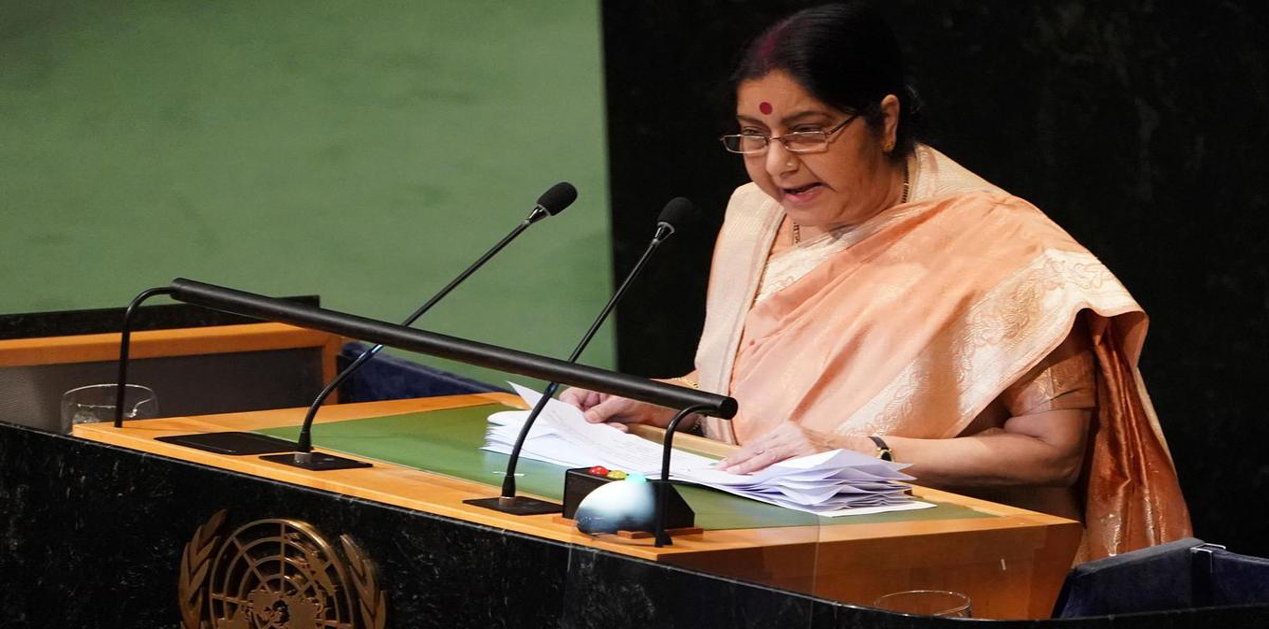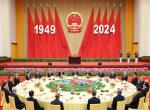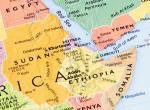Under Imran Khan, Pakistan was trying to win diplomatic points internationally by proposing a dialogue and putting the onus on India of rejecting a well-intended “peace move”.
Pakistan is under bilateral pressure from America through cutbacks on military and economic aid and through the International Monetary Fund (IMF) should Pakistan seek a bail-out for its troubled economy. It is under some compulsion to be responsive to international concerns about its links with terror. A diplo-matic move towards India would, Islamabad may have calculated, relieve some pressure on Pakistan. The easiest move, with no cost, would be to propose a dialogue with India, knowing that India will not agree unless Pakistan took visible and credible action against jihadi groups on its soil targeting India. This Pakistan will not do, as is clear from Imran Khan’s statements since he assumed power. He has tried to brush aside the terrorism issue by calling on both sides to cease blaming each other, which implicitly denies Pakistan’s terrorist activism against India, besides establishing an equivalence between the two countries on the use of terror as an instrument. Pakistan has accused India of involvement in Baluchistan internationally, sharing dossiers with the UN and others. It has fully milked the Kulbhushan Jadav case.
Terrorism was on the agenda of the stalemated Composite Dialogue for years, without exchanges on the subject ending Pakistan’s terrorist onslaught against India. Worse, we ourselves accepted equivalence by including the Samjhauta Express attack in our joint statements and even agreed to a mention of Baluchistan in one of them, causing much consternation at home. Both Imran Khan and foreign minister Qureshi have maintained an uncompromising line on Kashmir, making a solution based on the defunct UN Resolutions central to any movement on other fronts, including trade. General Musharraf had been quite candid about Pakistan’s use of terrorism in J&K as an instrument to force India to discuss Kashmir with Pakistan, as otherwise, he argued, India would have no incentive to do so. This fundamental link between terrorism and Pakistan’s Kashmir policy will not be broken by Imran Khan and the Pakistani military.
So when Imran Khan says in his letter to our prime minister that Pakistan is willing to discuss the issue of terrorism, it should not be read as willingness to respond to our demand that it should create a conducive atmosphere by curbing terrorism. That would mean acting against Lashkar-e Taiba chief Hafiz Saeed and Jaish-e Mohammad chief Masood Azhar,and trying those responsible for the 2008 terrorist mayhem in Mumbai as well as those behind the Uri and Pathankot attacks. Imran Khan, who himself has links to the religious extremists and has capitalised on their support to build his political career and eventually win the election, will not act against these jihadi groups who are also backed by the country’s armed forces.
The rot of religious extremism and terrorism has entered deeply into Pakistani society. Pakistan’s supreme court has refused to shut down the activities of Hafeez Saeed’s two charitable foundations despite their designation as terrorist entities by the UN. Imran Khan has been compelled to repudiate under extremist pressure his own move to nominate Atif Mian, a well known US-based Pakistani economist, to the country’s Economic Advisory Council because he belongs to the Ahmediya sect. Pakistan, which is already on the grey list of the Financial Action Task Force (FATF), would have been expected to comply with the road map it has committed itself to by way of curbing money-laundering and terrorist financing, but this month a body of the FATF has reported its dissatisfaction with Pakistan’s efforts on both counts. The political, military and social structures of Pakistan will not allow a cleansing of the jihadi forces polluting the country.
Nothing much could have been expected from the UN General Assembly meet-ing of the two foreign ministers (Qureshi was foreign minister when the Mumbai massacre occurred). The Modi Government opened itself to some criticism on green-lighting this meeting without any move by Pakistan on the terrorism issue and in the wake of the brutal killing of a BSF jawan by Pakistani Rangers on the international border. Our spokesperson had clarified, righty, that meeting did not mean dialogue and that India remained firm on the terrorism issue, a position that would be conveyed to the Pakistani foreign minister. The opposition, however, was given an opportunity to attack the Government about being alternatively tough and elastic towards Pakistan.
The meeting at New York could have served to deny Pakistan any propaganda advantage that India was being too rigid in rejecting even a proposal to meet. Post the meeting we could have immediately declared that we accepted it to not merely test the new government’s claimed intentions but to remove any notion it may nurse that words without action could unlock the doors to a dialogue. Our decision not to attend a SAARC summit in Islamabad so long as Pakistan re-mained a hub of regional terrorism and threatened the security of its neighbours could have been reiterated.
The New York meeting was called off because of killing of three J&K policemen by the Hizbul Mujaheddin and Pakistan’s egregious act in publishing 20 stamps to glorify Burhan Wani and other terrorists. Our spokesperson has pounded Pakistan’s “evil designs” and alluded to Imran Khan’s “real face” getting exposed. This has invited an unedifying riposte from Imran Khan himself who has called the Indian decision arrogant and disparaged the Indian leadership as “small men occupying big offices”. Such invective forecloses any possibility of any political-level bilateral engagement with Pakistan for the foreseeable future.
The situation has become even worse from this perspective because of exchang-es at the UN General Assembly and the earlier pro-forma meeting of the SAARC foreign ministers. Sushma Swaraj left the meeting immediately after making her intervention at the SAARC meeting and avoided any contact with her Pakistani counterpart. She comprehensively blasted Pakistan on the issue of terrorism in her UN General Assembly speech. Qureshi , in turn, has tongue-lashed India in his Asia Society speech and openly solicited US pressure on India in the east to allow Pakistan to deliver what the US wants in the west - the usual Pakistani shenanigans to link action against the insurgents and terrorists in the west to the satisfaction it can get on Kashmir. This shows how deeply entrenched is Pa-kistani duplicity and hypocrisy. When Pakistan in the past moved a large num-ber of its troops away from the east to take action in North and South Waziristan and the Swat valley, India did not take advantage of the situation to step up pressure on the LOC.
Pakistan has not seriously addressed US concerns because its strategic aims are to recover influence in Afghanistan through the Taliban. The Taliban are in fact flourishing today with Pakistani support. In his UN General Assembly speech Qureshi exceeded all bounds of propaganda by accusing India of involvement in the Peshawar attacks that killed several children and, of course, harped on the Kulbhushan Jadav case. Qureshi represents the true face of the Imran government that our spokesperson had alluded to earlier. ‘Naya Pakistan’ is only a political slogan for internal consumption. For India it is very much the old Pakistan.
The Government’s on-off decision on resuming contacts with Pakistan, while inviting further criticism at home, carries a lesson that has repeatedly not been heeded that in Pakistan’s case rude reality always overtakes the creation of false hopes.
(The author is a former foreign secretary, and a Member of the VIF Advisory Council)
Image Source: https://www.thenational.ae/image/policy:1.775297:1538254365/wo30-india.jpg?f=16x9&w=1200&$p$f$w=bca590c










Post new comment